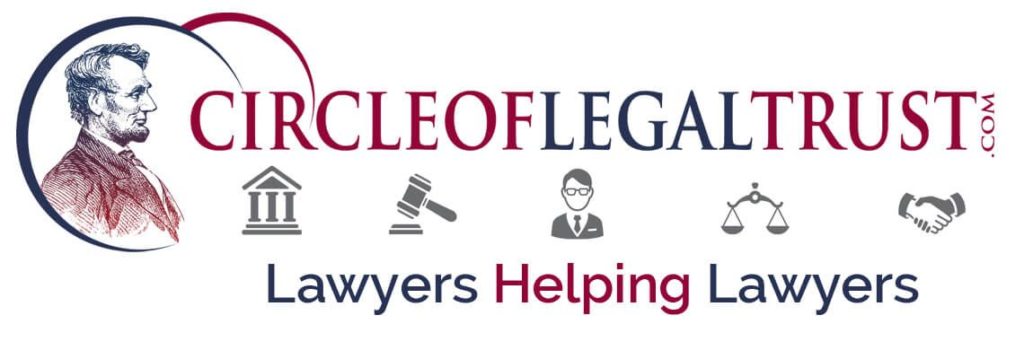How Grammar Errors Will Kill Your Lawyer Website Rankings

Typos and grammatical errors on websites are not unheard of, and we all find ourselves snickering away when we come across one. However, social media has made slang and bad grammar the new norm.
Of course, when we read through these half-baked sentences with random typos, acronyms, and grammar errors, it doesn’t really affect the message they’re trying to convey. But, as a business owner or marketing specialist, writing content with those pesky errors for your client’s websites surely kills their credibility.
These grammar errors are highly unprofessional, and to make matters worse, they hurt the brand and negatively affect the website’s SEO (Search Engine Optimization) ranking, which we all crave.
C.O.L.T understands the importance of a well-written blog, and here we will share with you how grammar errors affect your website’s SEO rankings and some common grammar mistakes that could kill your credibility.
How Do Grammatical Errors Affect Your Lawyer Website Brand?
Grammar errors in real life can definitely impact your career opportunities and your chances of promotion at work, and even put a dent in your online dating life.
Imagine having to read a candidate’s resume filled with grammar errors for an open position in a company. Would you dare hire that candidate, knowing how unprofessional their resume looks? Kyle Wiens, CEO of iFixit, mentions how he has a zero-tolerance approach to grammar mistakes, stating that writing is a projection of you in your physical absence and it must convey a strong message rather than “the writer is sloppy.”
What about your personal life, the profile that you made for online dating websites to attract “potential partners”? A study conducted in the Netherlands revealed that grammar errors, slang, and irregular caps are often perceived as less attractive, affecting the person’s chances of matching with another online user.
What if a business spends thousands of dollars on a billboard for its new product that is riddled with grammatical errors? Your customers are going to lose faith in the brand, and the same is true for websites. You’re going to lose credibility!
Think about it. You visit a blog to find some information but come across a myriad of errors bombarding you as you read through the first paragraph. You’re definitely going to switch to another blog, and consumers switching from one blog to another is catastrophic to a business’s long-term survival.
Examples of Grammar Mistakes and Spelling Errors Costing Millions
Grammatical errors not only hurt brand identity but also affect a business’s revenue. In 2019, an A/B test conducted by Website Planet on two similar landing pages, one with perfect grammar and one with spelling issues, found that the one with spelling and grammar mistakes lost twice the number of potential customers as compared to the landing page with immaculate grammar.
In 1872, President Ulysses S. Grant introduced exemptions for the “fruit plants for propagation” tariff, but the act passed had an error, a comma in between fruit and plants, now reading as “fruit, plants for propagation.” The Oxford comma error cost the government $2 million in revenue losses, which in today’s time, taking inflation into consideration, is a whopping $40 million.
In 2015, the British government made a small mistake that cost them millions of dollars in a lawsuit against them. A business by the name of Taylor & Son was facing serious financial difficulty and was immediately listed by the British government as a business that was facing liquidation. However, when listing the business, Companies House made a huge mistake by listing “Taylor & Sons” rather than “Taylor & Son.” The owner of Taylor & Sons decided to appeal the decision in court and stated that it was Companies House’s duty of care to list the right company, which they failed to do so. It took three days to rectify the error, but the liquidation word had already spread, causing an immense loss to the business in the form of loss orders and withdrawal of credit facilities. The 124-year-old company went bankrupt as a result of the mistake, but during trials, the court ruled in favor of Davison, the owner of the company, who claimed £8.8 million in damages.
The Lockheed Martin contract typo that cost the aerospace giant company $70 million is also another classic example of a typo gone wrong. In 1999, Lockheed Martin entered into a contract with an overseas unnamed air force to supply the C-130J, a transport carrier airplane. The contract had an inflation formula that would calculate the change in the price of the airplane according to inflation. However, the misplaced comma in the formula left the company with a $70 million bill when inflation rose less than expected, and the customer wanted Lockheed Martin to honor their contract.
In 1988, a typo error cost a travel business 80% of its client when Yellow Pages made a mistake in posting their ad. Gloria Quinan, the owner of an exotic travel business, offered tour packages and decided to promote her “exotic travel” business in the Yellow Pages. However, Yellow Pages made a typo that read her ad as “erotic travel.” Gloria approached Yellow Pages to fix the issue, but they refused, thus resulting in the travel business losing 80% of its clientele. The company took Yellow Pages to court over the issue, stating that most of her clients were older people who now wanted to avoid her and that the reputation that she had built over the years was all gone in a matter of days. Her attorney argued that Gloria Quinan faced serious mental anguish from the typo. The court ruled in favor of Gloria Quinan, who claimed $10 million in damages.
In 1962, the US government made a serious grammar error during the Mariner 1 launch. The space probe was successfully launched but soon exploded after take-off. An investigation into the explosion revealed that a missing hyphen in its guidance software altered its direction towards a populated area. To avoid devastating casualties, the team at NASA deliberately detonated Mariner 1, which cost the US taxpayers up to $150 million.
The reason for mentioning all these examples and studies is to ingrain the fact that immaculate grammar and spelling are critical for the success of your business. If you’re lucky, you may be able to brush away these errors as embarrassing mistakes, but if you’re unfortunate, it can destroy your brand image while you face expensive legal battles.
When it comes to websites, grammar mistakes not only affect the number of visitors visiting your website but also put a dent in your SEO ranking. Typos and grammar mistakes on a website can hurt the Google ranking allowing your competitors to beat you.
Let’s look at some of the ways bad grammar and spelling mistakes can affect your website’s SEO ranking.
Lower Dwell Time
Google and other search engines use the amount of time a visitor spends on a website and the type of pages they visit as one of the criteria for ranking websites. If a visitor doesn’t spend much time on a website for a particular search result, Google will assume that they didn’t find what they were looking for pertaining to that particular search result, thus affecting the rankings.
For example, if you search for “retirement community attorneys in Los Angeles” and come across a website with spelling and grammar errors, you’re going to switch to another website. In doing so, Google assumes that you didn’t find anything related to your search result and therefore pushes back your ranking.
A decrease in ranking reduces the amount of traffic on a website and therefore affects the business’s bottom line.
Higher Bounce Rates
Higher bounce rates damage a website’s SEO as it sends a message to Google that the website is not trustworthy or has nothing to do with the search result entered, therefore lowering its rankings.
But what’s a bounce rate?
“Bouncing” is a term used to refer to visitors who visit a page on a website and then leave without exploring other pages on it. A study conducted by Website Planet monitored 5,000 sites over a period of two weeks, and the findings suggested that websites with errors had an 85% bounce rate compared to websites with immaculate spelling and grammar.
Organic search results are crucial for a website’s growth and lower dwell times with higher bounce rates are a huge barrier to it.
Poor User Experience
Google spiders, also commonly referred to as crawlers, scour the internet, scanning websites to assign them rankings. Of course, these “spiders” cannot directly determine whether a website is visually appealing or has an intuitive interface. However, they use various signals to help them determine whether the website offers a great user experience.
If users visit a website but don’t spend much time on it due to grammar issues or spelling mistakes, Google takes it as a sign that the website offered a poor user experience, thus affecting rankings.
How Does Google Distinguish Great Grammar from Bad?
Surprisingly, Google uses 200+ different signals to assess the quality of a webpage, and none of them includes spelling errors or poor grammar. Studies suggest that websites with great thought-out content, fantastic grammar and immaculate spelling tend to do fairly well in rankings compared to websites that don’t.
It’s difficult for Google to identify a grammar mistake and incorporate it into the rankings due to many different factors, especially the language of the page. You might think that a webpage has awful language or grammar, but it might turn out that it’s written in Hungarian rather than in English, or maybe the webpage has a paragraph or two in Hungarian rather than English. This is why Google does not use grammar or spelling errors as signals.
The correlation between a website’s ranking and poor spelling or grammar boils down to the user experience and backlinks.
Google uses lower dwell time, higher bounce rate, and other signals to determine the visitor’s experience. More typos and grammar errors result in lower dwell time and higher bounce rates.
Another important ranking factor is backlinks. Links from other websites to yours increase your SEO ranking, but if your website has poorly-worded content, not many people are willing to backlink to your site on one of their pages.
Common Mistakes That Destroy Credibility
Let’s go over some of the most common grammar errors, punctuation errors, and usage mistakes that destroy a website’s credibility.
Common Grammar Errors
Your vs. You’re
This is the most common grammar mistake you’ll come across, and if you’re not sure which word to use, try to read the sentence with “you are” instead. If it fits well, then “you’re” is the correct word to use.
Correct: You’re the right kind of attorney we are looking for.
Incorrect: Your the right kind of attorney we are looking for.
Too vs. To vs. Two
Let’s address the elephant in the room here, and that is the word “two,” which is the number “2.” Now, the other two words, “too” and “to,” are common errors to make, especially if you’re not paying close attention.
“Too” is another word to replace “also” and is also an adverb, while “to” is a verb used to express motion towards something.
Correct: A few weeks later, after his claims, Timmy, too, recovered financial compensation.
Incorrect: A few weeks later, after his claims, Timmy recovered financial compensation, too.
Incorrect: John wanted to go too a law firm.
Correct: John wanted to go to a law firm.
Affect vs. Effect
If you’re not careful during writing, you’ll end up confusing “affect” with “effect”. The word “affect” is a verb, while the word “effect” is a noun.
Incorrect: Can pictures of the accident effect your personal injury claim?
Correct: Can pictures of the accident affect your personal injury claim?
Incorrect: Your spinal cord injury is the affect of multiple nerve damage around the spine.
Correct: Your spinal cord injury is the effect of multiple nerve damage around the spine.
Ensure vs. Insure
“Ensure” is commonly used as a sort of guarantee, while “insure” simply means to protect.
Here are some examples to familiarize yourself with how to use these two words.
Our personal injury attorneys ensure you get the best legal representation in California.
It is mandatory to insure your new car to drive legally in California.
Weather vs. Whether
Weather is a natural occurrence or a phenomenon, while “whether” is commonly used as an alternative to the word “if.”
Example: I don’t know if I should leave home on a motorcycle because I’m not sure whether or not the weather is going to change in the next hour.
Loan vs. Lend
A loan is a financial payment given to one party against future repayments, while lend is a verb used to describe the act of giving something.
Example: Instead of taking out a loan from the greedy bankers, I decided to lend a friend some money to start his own business.
Their vs. There vs. They’re
This can be tricky for many people, but “there” is commonly referred to as a place, “their” is a possessive pronoun, and “they’re” is short for “they are.”
Example: There is a law firm on 26th Street that offers its audience their free consultation session when they’re conducting seminars across the state.
It’s vs. Its
“It’s” is a short form of “it is,” while the other, “its,” is a plural possessive pronoun.
Example: It’s going to be a long day at court before the jury reaches its conclusion.
Common Punctuation Errors
Commas
Although commas are highly effective in forming sentences, they are often misused. A comma is a slight pause in a sentence or simply used to separate items instead of using “and” over and over again.
We’ve gone over examples of how companies faced millions of dollars in losses by either misplacing the comma or not using it at all in their contracts, completely changing the meaning of it.
Incorrect: Economic damage includes medical bills and lost wages and future earning losses and more.
Correct: Economic damage includes medical bills, lost wages, future earning losses, and more.
Colon
A colon is a punctuation mark that is often used after a full sentence, either to introduce a quote, a list, or a phrase.
Example: For a successful personal injury claim, you must prove these four important elements: duty of care, breach, causation, and damages.
Common Usage Mistakes
Multiple Exclamation Points
When writing content for a business website, there are very few situations where content marketers use exclamation points, let alone use multiple exclamation points. Exclamation points are acceptable when citing quotations, but in sentences, they are typically used to express excitement.
All Caps
“All caps” is when a sentence is completely written in capital letters. For example, I NEED AN ATTORNEY TO HELP ME WITH MY LEGAL TROUBLES. The rise of all caps is due to social media and instant messaging where it is often used to provide emphasis to a sentence or express yelling.
Too Many Adverbs
Adverbs can make a sentence appear colorful, but overusing them is a clear sign of laziness or cluttered writing. To ensure a great dialogue, use strong verbs instead of “-ly” adverbs. The general rule for using adverbs allows for one adverb per 300 words.
Incomplete Sentences
An incomplete sentence or a sentence fragment is a sentence that may be missing a verb, a subject or both, and because of this, it lacks context.
Incorrect: It is crucial to file a personal injury claim as early as possible. Even though the statute of limitations allows two years to pursue a legal claim.
Correct: Even though the statute of limitations allows two years to pursue a legal claim, it is crucial to file a personal injury claim as early as possible.
Passive Voice
A passive voice is a grammatical construction where the subject undergoes the action of the verb. Passive voice is typically used in research papers or in academic writing, but other than that, it is mostly considered a weak form of writing and often frowned upon.
Passive voice: The entire family was injured in a car crash.
Active voice: The car crash injured the entire family.
Fused Sentences
Also commonly referred to as “run-on sentences,” these occur when two sentences are put together without using proper punctuation. These can either be long or short sentences.
Incorrect: John had some evidence against the defendant however it was not enough for a ruling in John’s favor.
Correct: John had some evidence against the defendant. However, it was not enough for a ruling in John’s favor.
Correct: John had some evidence against the defendant; however, it was not enough for a ruling in John’s favor.
Vague Pronouns
If a pronoun does not clearly refer to a person or something in a sentence, it is then referred to as a “vague pronoun.”
Incorrect: I never want to engage in a legal battle because it can wear you down.
Correct: I never want to engage in a legal battle because it wears me down.
Wordiness
Readers lose interest in long-worded sentences unless they have a purpose behind them. In many cases, wordiness can be boring, so it is best to shorten sentences to keep the audience engaged.
How to Make Your Website Error-Free
Here are six ways you can avoid making bad spelling or grammar errors on your website.
Always Proofread Your Work
It is crucial to remember that you can never rush good-quality, well-thought-out content. So when you’re done with writing a post, make sure you read it again and then proofread the work one last time. If you’re having any doubts about a particular paragraph, recheck it again.
Read Out Loud
It might sound silly, but reading your work out loud helps you process the information better and allows you to pick out any errors. If something seems awkward while reading or doesn’t make total sense, you should revisit it and re-write the phrase or paragraph.
Two Is Better than One
If you’re feeling tired after writing a lengthy blog post, chances are you’re going to miss out on some mistakes during proofreading. Having someone else go through your writing can give you a fresh set of eyes, identifying errors that you missed early on.
Print It Out
Although this is an old-school method, it still works like a charm. Print out your blog post and go through it. Keep a red pen with you to identify any issues, errors, or feedback you would like to incorporate into your writing before posting the blog online. Errors are much easier to notice when you’re reading them in hard copy rather than on a screen.
Use Different Tools
There are many free tools online to help you improve the grammar and spelling in your blog posts. These tools are great if you’re not that good at writing, and the premium versions can even re-write complete sentences perfectly.
Tools like Grammarly and Quillbot help identify typographical errors, determine punctuation marks, and correct the content online according to the English language used (American vs. British English).
Don’t Get Too Relaxed on Social Media
As mentioned previously, many people have the habit of using slang or incomplete words on social media. Well, your message may be technically correct and well received by your audience, but it also affects your ability to write correct sentences.
Outsource the Content to a Professional Writer
Consider this a fantastic investment in your business, as a perfectly written website and its content will draw more traffic to your website, resulting in more revenue.
A website with errors can completely undermine your firm’s marketing efforts. Having a professional writer responsible for your content across the entire website is an option you should consider if writing is not your strong suit.
Boost Ranking of Your Website by Updating Old Content
We’ve already discussed how spelling and grammar mistakes can severely affect your website’s SEO ranking even if it does not meet one of the 200 Google ranking criteria. With all the content already posted on your site, simply updating your old content can help you improve your ranking.
- Updating older content can improve your click-through rate, which Google uses as one of its criteria for SEO ranking. When you update older content, it gets posted with the latest date, and users are more likely to click on articles published recently than articles that are years old. For example, after a recent change in law, a person searching for information would want to view the most recently published article rather than the one posted a year ago with outdated information.
- Your old articles may include spelling and grammar mistakes. Updating the article is your chance to redeem yourself and improve the user experience.
- Don’t just revisit the article for spelling mistakes or grammar errors; while you’re at it, optimize the article for a relevant keyword too. Perhaps you didn’t get time to conduct a proper keyword search or didn’t do it correctly in the past. You’ll find that improving your keywords can increase traffic to your website.
- It can be really frustrating for a user to come across a webpage with broken links, and these occur because the original article may not exist anymore. This can hurt your SEO rank. It may look like a chore to search each post for broken links, but in reality, it is pretty simple. There are many tools that you can use to search your web pages for broken links, such as the online broken link checker and the broken link checker for Chrome, among others. These tools scan your web pages, identify all the broken and functioning links, and assign a color to them for quick action. Once it identifies the broken links, you must search for similar quality pages to replace the broken links with.
- Since you’re revisiting your older content for improvements, why not add new links to it to provide users with better resources? Better resources add a lot of value to older content and improve the user experience. You can even link your articles with other articles you have already written.
- Visuals are important and it is one of the factors that drive user experience. Reading a huge block or paragraph of words can be boring and does not attract backlinks. Images, on the other hand, improve the article’s readability and attract backlinks, which in turn improves SEO ranking. The general rule is one image per 350 words.
Takeaway
Humans are prone to making errors, but getting into the habit of proofreading before publishing your post can significantly improve your website’s user experience and SEO ranking.
At C.O.L.T, we keep our members updated with the latest SEO practices to help them improve their websites. If you’re interested in contributing or want to know more about C.O.L.T, contact us at +(888) 494-5015 or email us at info@circleoflegaltrust.com.


